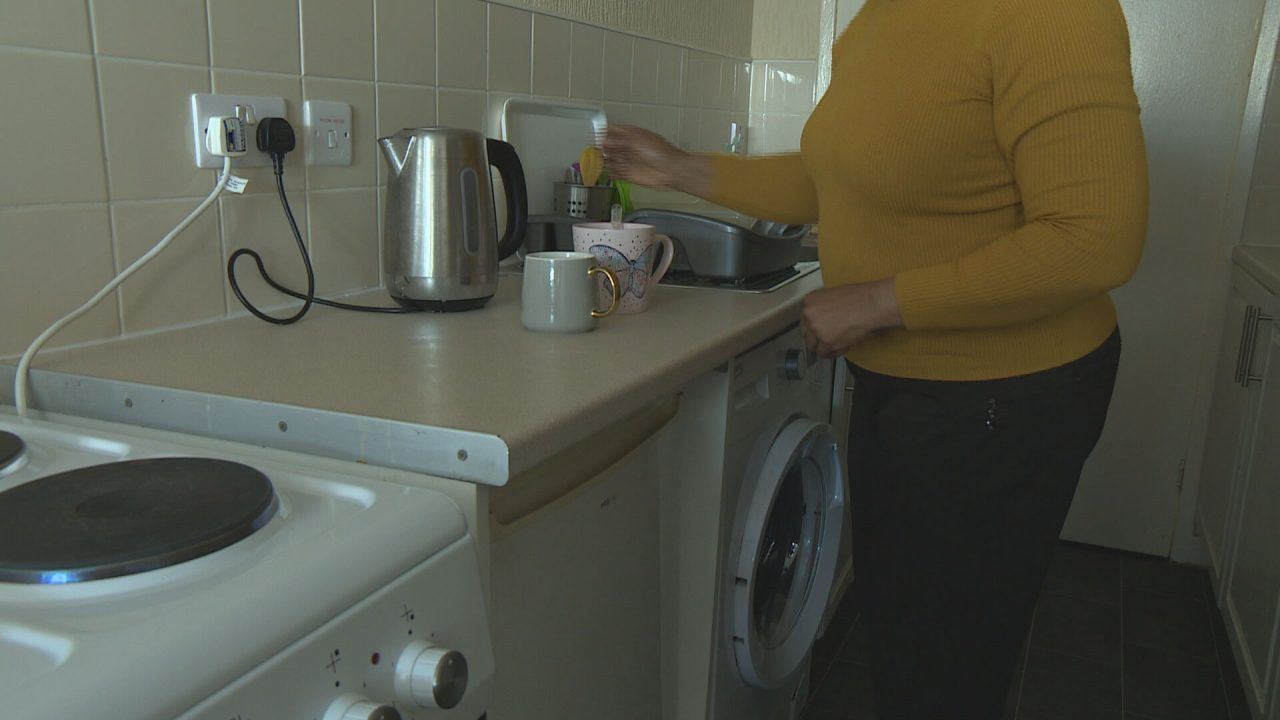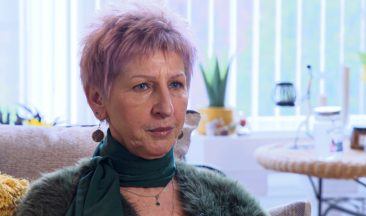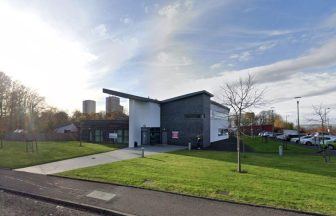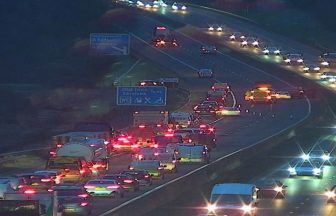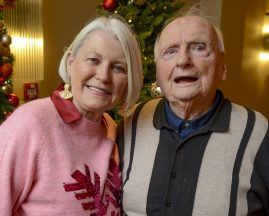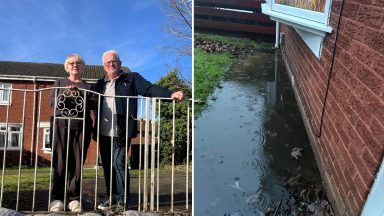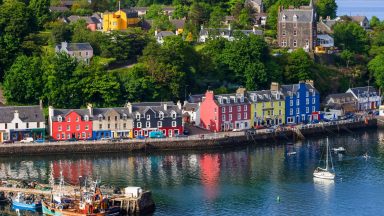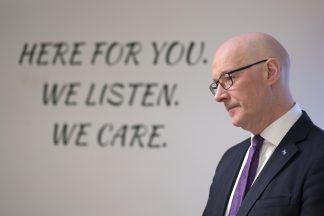A mum-of-three has described the difficulties she has faced navigating the UK immigration system while living in Scotland.
Annie* came to Glasgow in 2020 with her three children and said the journey to being granted asylum has left her feeling “between the devil and the deep blue sea”.
It comes after “damning” research argues the immigration system is ‘guaranteeing’ destitution and homelessness for thousands of people in Scotland.
A survey carried out by Heriot-Watt University of more than 130 people who travelled to the UK to settle, including individuals seeking asylum, found 97% were destitute, with an average weekly income of just £40.
It also found 93% had experienced homelessness, with 53% having slept rough in the last year and 55% being housed in temporary accommodation provided by charities, councils or the Home Office.
Some people facing these circumstances have been living in Scotland for many years.
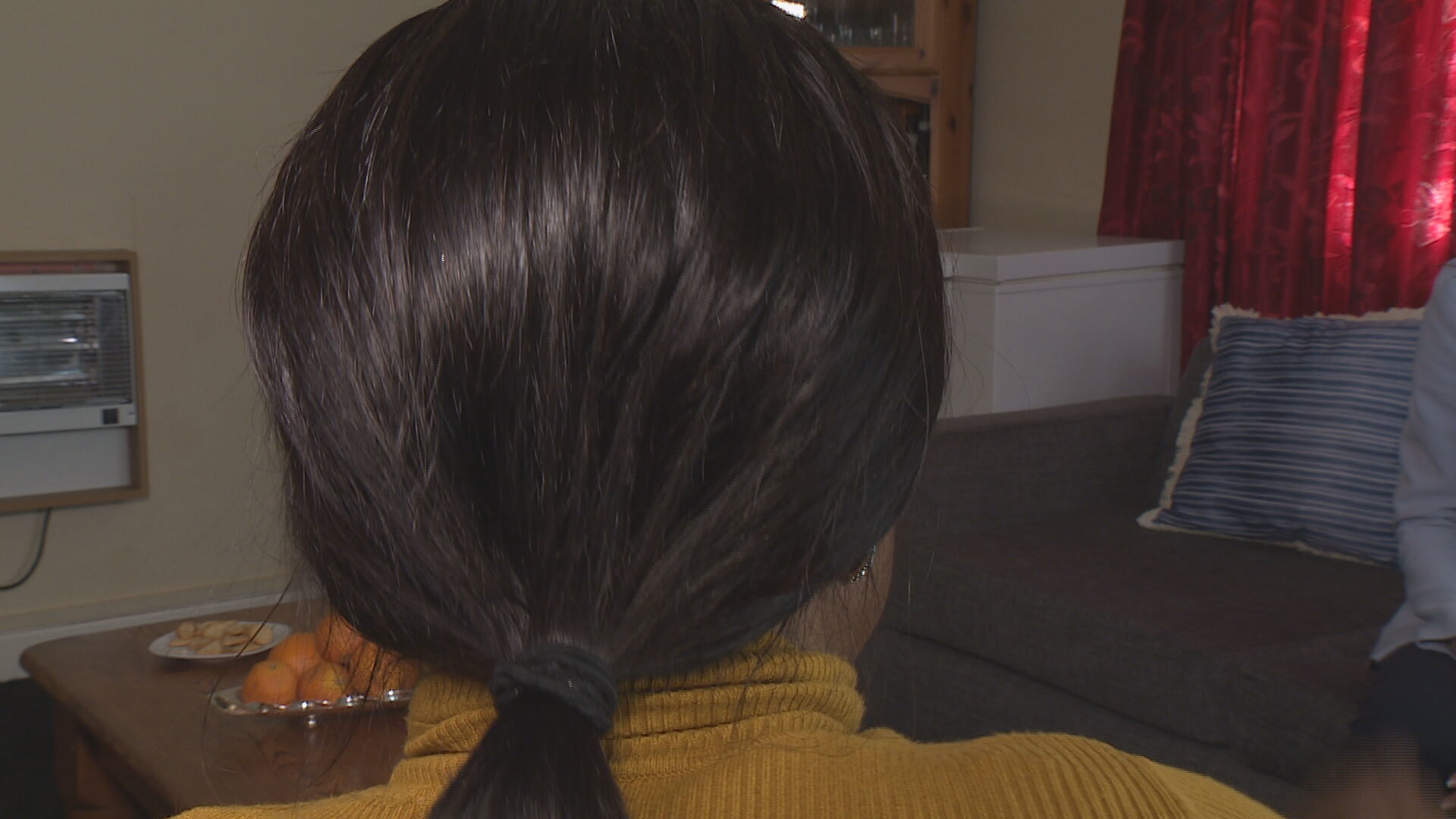 STV News
STV NewsWhen Annie fled her home country for her family’s safety five years ago, she also left behind a high powered job and financial security.
She said her experience with the immigration system was confusing and dehumanising.
She told STV News: “People seeking protection should be treated with more dignity. Give the process some human face. Leaving your home country, leaving everything you know, you own, you’ve worked for.
“To start as a nobody, an intruder – it’s a huge sacrifice to start all over again. He who feels it, knows it.”
Annie was initially placed in temporary accommodation with her three children.
She added: “I remember the first day at the hotel, we got in it was at 9pm. We practically went to bed hungry but we just managed to have that white rice with milk until the next morning.
“It’s kind of monotonous, the same food rice everyday, rice everyday, rice everyday. It’s either you eat it or go hungry.”
She recalled facing eviction from her temporary home, was dumped at the council’s doorstep and struggled to any information about her legal status.
“I was left in the cold. Nine months down the line I couldn’t get a job,” she added.
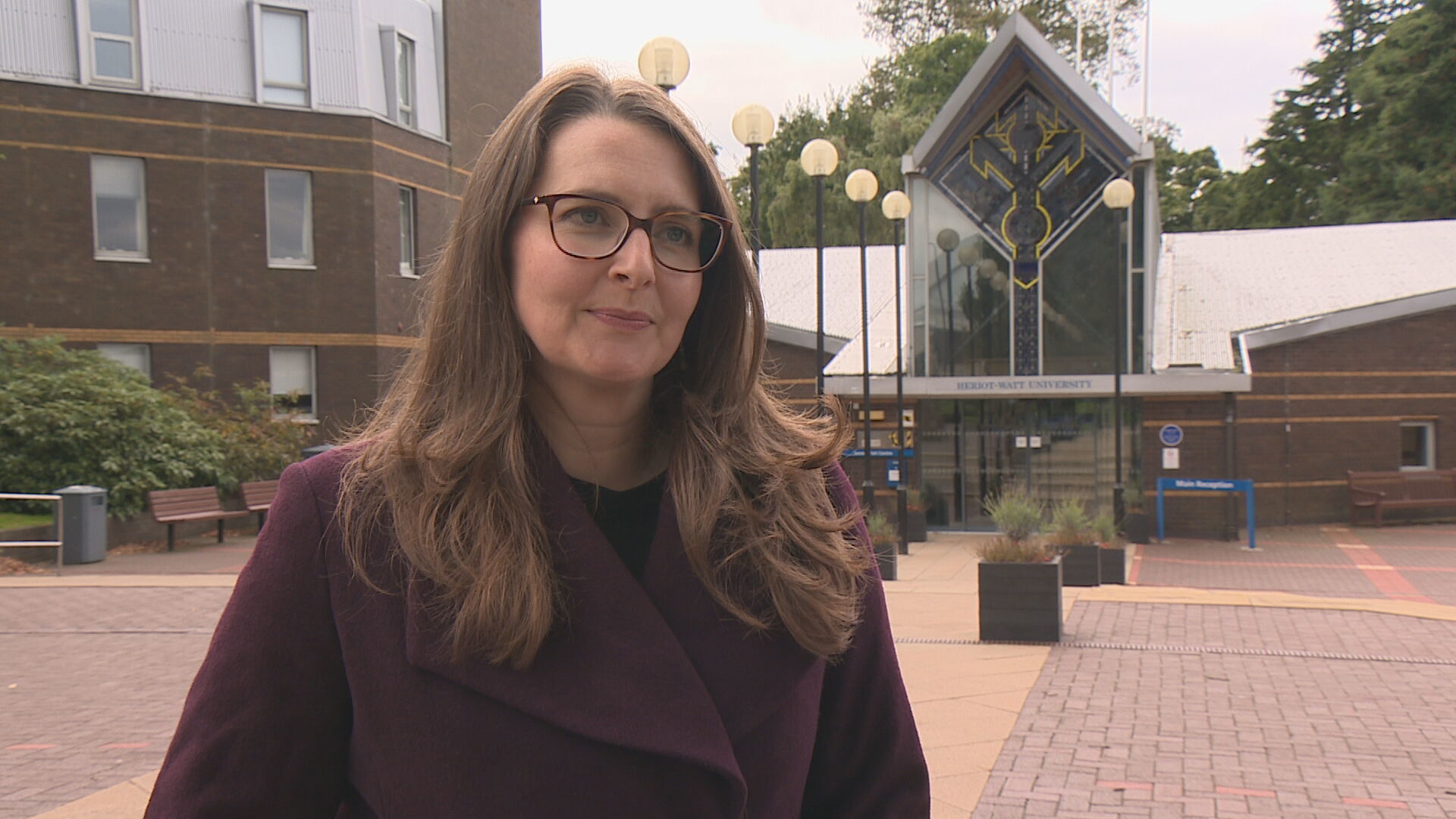 STV News
STV News“It was a very difficult situation. it was very tough for us at that time.”
The study, which surveyed people trying to access crisis support from Fair Way Scotland, a partnership of third sector organisations working to help those with NRPF, found that for some people going hungry and living without clothing and basic toiletries was the norm.
Researchers have since produced a report calling on governments to make urgent changes to policy to stop what they have termed as “destitution by design”.
Heriot-Watt University professor Beth Watts Cobbe says the results of the survey amount to a “humanitarian crisis” and calls on the UK and Scottish Governments to “stop passing the buck.”
“UK immigration policy and law is enormously complex. it’s also shot through with hostile environment policies restricting people accessing mainstream forms of support.
“It’s an absolutely damning report, what it highlights is the enormous individual costs imposed on people, the suffering and the layers of compound trauma and disadvantage people experience.
“These costs are exacted on communities and public services too. because of the levels of disadvantage people experience, people’s mental and physical health affected, we see A&E and charities trying to pick up the pieces of this entirely preventable crisis.
“With political will, responses can be scales out rolled out and mainstreamed so all people have access to essentials needed to have a dignified life.”
Scottish Refugee Council chief Sabir Zazai said: “Housing is an important stepping stone for meaningful and dignified integration.
“If people don’t have a roof above their head, they’re destitute and they’re homeless, we can’t expect them to be part of our society.”
The reality is, it’s unlikely the pressures facing the immigration system – impacting people like Annie will change anytime soon.
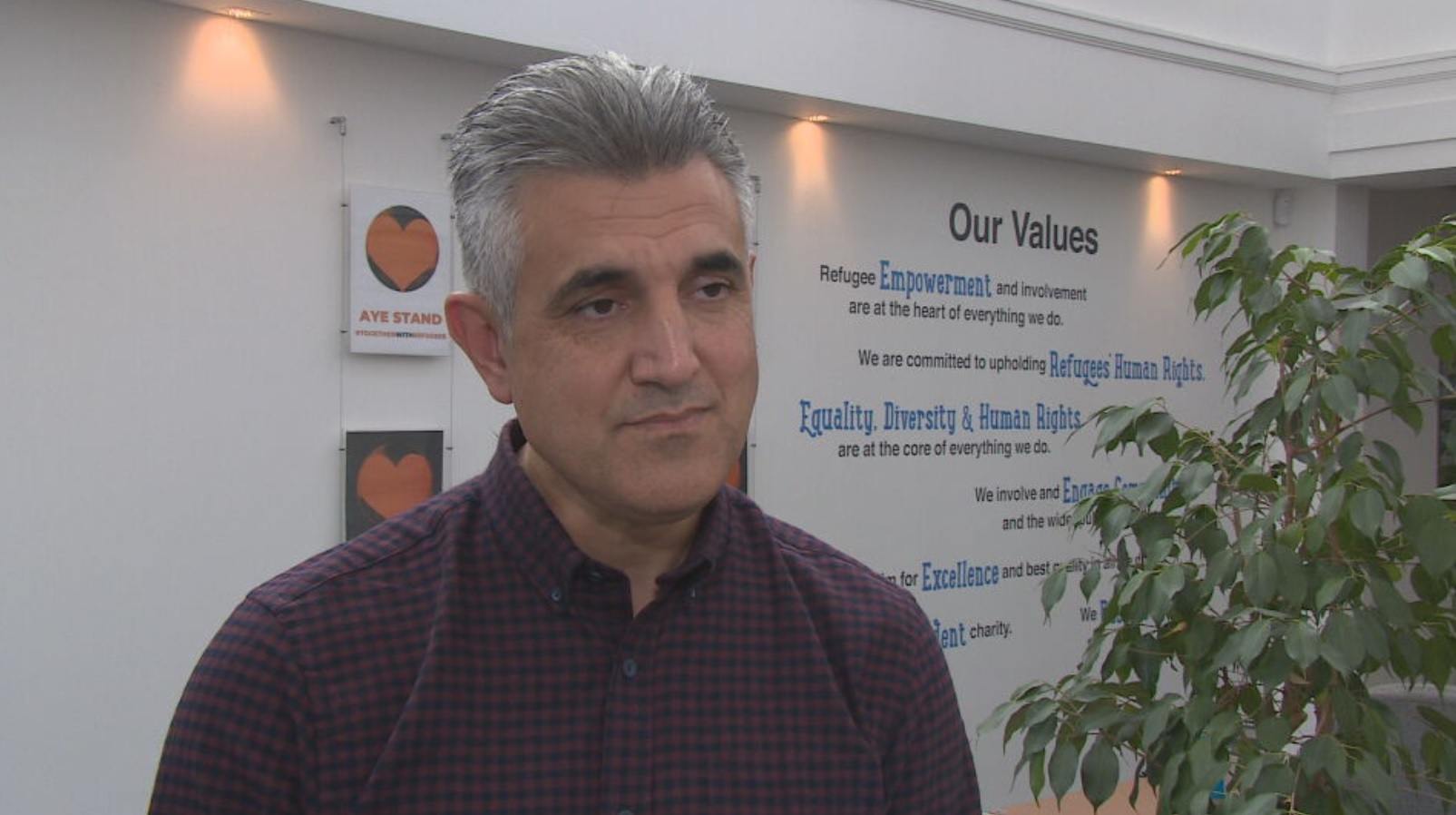 STV News
STV NewsA Home Office spokesperson said: “The new government is committed to ensuring strong and important safeguards are in place for individuals who find themselves in the most challenging circumstances.
“This includes the ability to apply for the No Recourse to Public Funds (NRPF) condition to be lifted.
The NRPF restriction is designed to ensure managed immigration benefits the UK and taxpayer funds are protected.”
Scottish Government Equalities Minister Kaukab Stewart said: “The Scottish Government will continue to raise the impact that the No Recourse to Public Funds policy has with the UK Government.
“Nobody should be pushed into destitution. People who are subject to this policy are members of our communities and we should be able to support them at times of crisis.
“The Scottish Government will continue to do all it can, within devolved powers, to protect communities and support people.
“We are working to influence the UK Government on changes to the immigration system that meet Scotland’s distinct economic and demographic needs, reflecting our values as an open, welcoming nation.”
Follow STV News on WhatsApp
Scan the QR code on your mobile device for all the latest news from around the country


